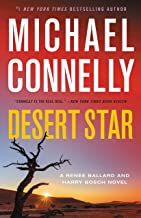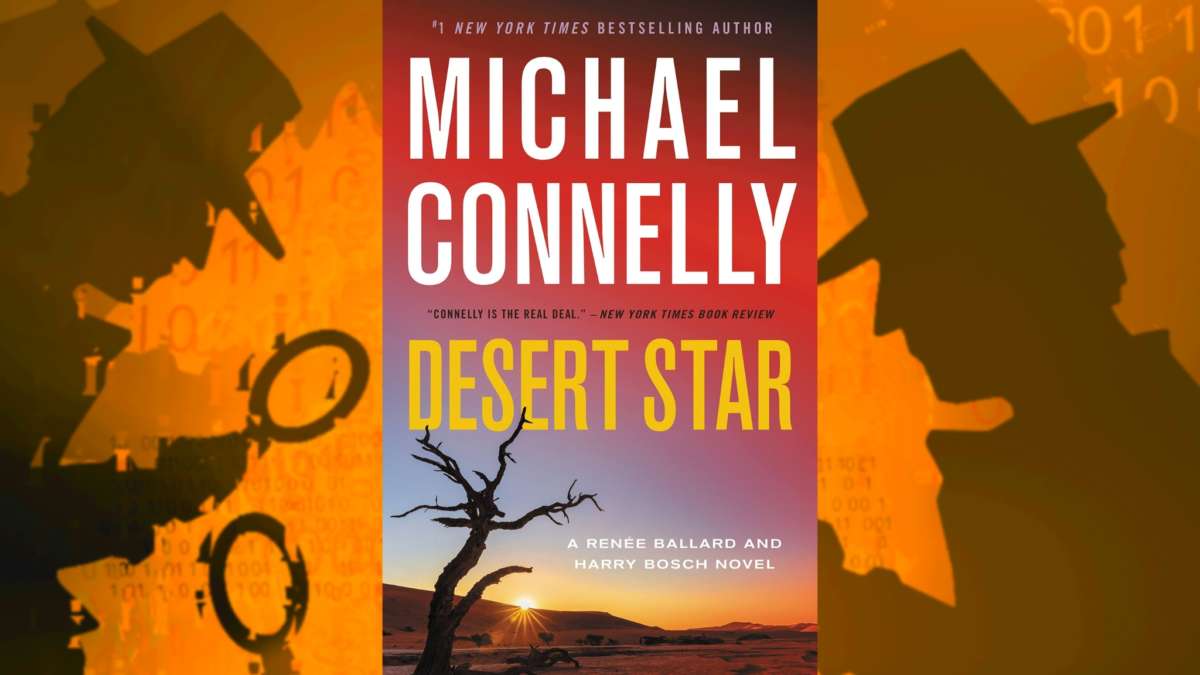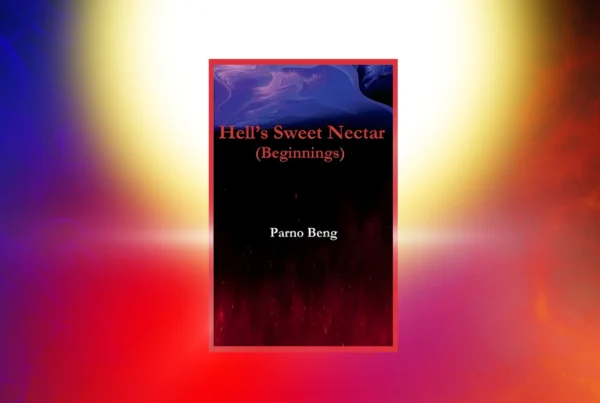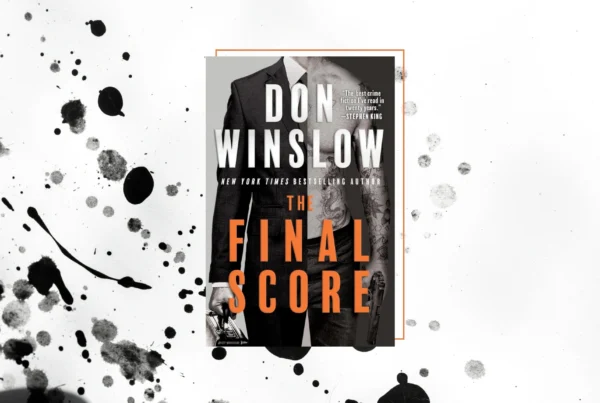Desert Star by Michael Connelly
No modern author has mastered the detective-thriller genre better and more consistently than Michael Connelly, but Desert Star (Little, Brown and Company), his new Harry Bosch novel, seems a little different. There are two reasons for that, but in the spirit of thriller writing, I won’t reveal the second reason until the end.
METHODICAL AND RELENTLESS PLOT
For starters, Desert Star unwinds more as a quiet, slow burn rather than a raging fire of crisis and drama. The stakes are high and the threats are real but never feel off the charts. Even the dramatic action sequences seem a bit restrained. But that restraint creates a dramatic edginess, too, and if you’re a fan of good detective thrillers and certainly a fan of Connelly and Bosch, his most enduring character, you’ll keep reading.
This is a thinking person’s police thriller that moves methodically and relentlessly forward from the opening chapter. Things get started when Renée Ballard, Bosch’s one-time colleague and protege, recruits Harry — the epitome of a “restless retiree” — as a volunteer for the Los Angeles Police Department’s newly reconstituted cold-case unit that she’s heading.
STRANGE YET SKILLED ENSEMBLE
It was a year earlier that Ballard quit the police force after dealing with too many hassles. Well, “hassles” might be too mild of a word in reference to misogyny and rampant bureaucratic frustrations. The police chief told her the department needed her, and she could choose her next gig. Now she’s rebuilding the cold-case unit, but she has to do so with an unusual group of volunteer experts.
I’m not sure California’s wage-and-hour laws would really allow this setup but, for Bosch, working as an unpaid volunteer is the ultimate testament to his slogan, “everyone counts or nobody counts.”
Ballard has assembled a fascinating cast of volunteer detectives, including a genealogical expert who is also a psychic and gets weird vibes from Bosch. Still, it’s Harry’s chance to revisit a case that has always haunted him — an unusually brutal murder of an entire family. Harry’s main suspect has either died or disappeared.
CONNECTING COLD CASES
True to form for a Bosch story, there are parallel investigations as Bosch and Ballard focus on two different cold cases. You follow along as they struggle to put the pieces together until, hopefully, one case resolves while the remaining plot threads dangle.
Ballard’s top priority doesn’t match Harry’s, and she orders him to focus elsewhere. She needs Harry’s help to solve the years-earlier rape and murder of a 16-year-old girl whose brother happened to become an influential member of the L.A. City Council.
The councilman’s hunger to solve the decades-old case provided much of the impetus and political clout to restart the cold-case unit. Meanwhile, the councilman’s top aide hovers over Ballard, pushing for updates and criticizing the pace of the investigation. He behaves like a helicopter parent who wants to make sure his kid gets the starring role in the school play — and knows he can get you fired if you don’t deliver. For Ballard, failure isn’t an option if she wants to keep the unit going and maybe even prevent her career from crashing again.
When Ballard and Bosch connect the case to yet another unsolved murder that has a potential connection to one of the councilman’s first political races, the questions and suspicions about what really happened grow more sinister.
NEW BOSCH AND HIS FUTURE
Now for that second reason that made Desert Star seem different — at least for me … Remember those words “restraint” and “relentless”? You’ll find a Harry Bosch who isn’t quite himself. He is still relentless but is a bit restrained and even harder to know than usual.
His detective skills remain razor-sharp, but perhaps his judgment is not as he limps around, showing signs of physical age. He’s decades removed from the young soldier who fought the enemy as a “tunnel rat” in Vietnam before becoming an L.A. homicide detective.
That’s why Desert Star seems like a transitional episode in a long-running series, pointing somewhere richer and deeper. I’m wondering if Connelly has used Desert Star to set us up for perhaps the best Harry Bosch tale ever. To say more would be a spoiler, so I’ll leave it at that, but I can’t wait to learn if I’m correct.





